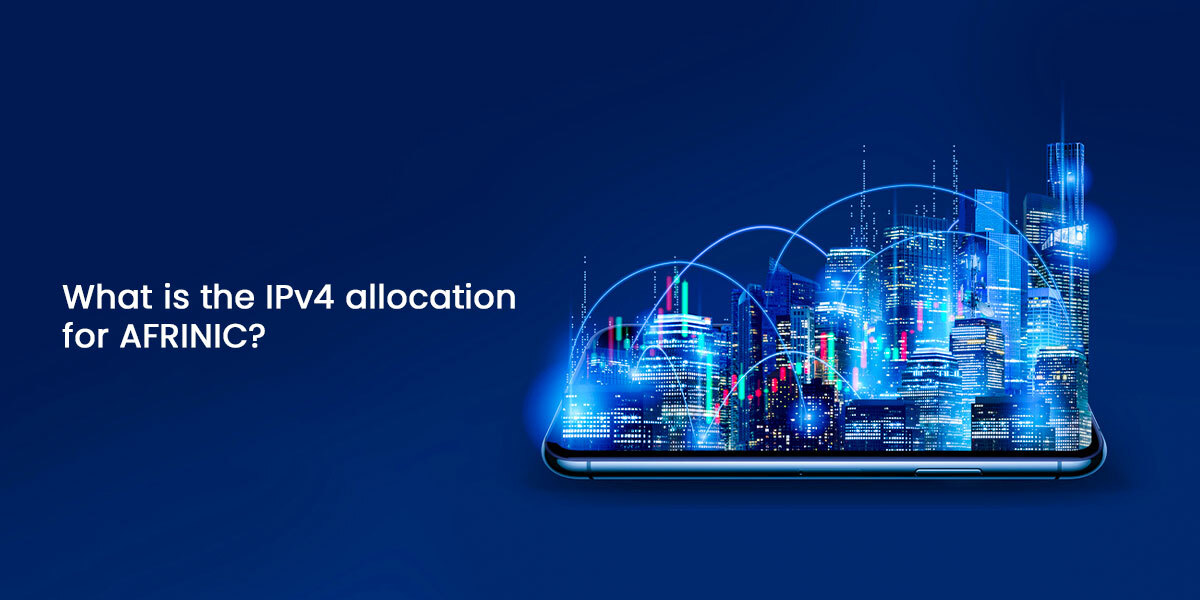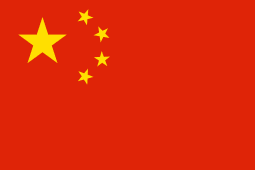![]()

January 15, 2024
Cracking the Code: Deciphering IPv4 Allocation for AFRINIC
So, you’ve entered the labyrinth of the digital world, and now you find yourself entangled in the mysterious web of IP addresses.
Fear not! Today, we embark on a journey to unravel the enigma of IPv4 allocation for AFRINIC – the African Network Information Centre.
Understanding the Basics: What’s IPv4, Anyway?
Before diving into the intricacies of AFRINIC’s IPv4 allocation, let’s get back to the basics. IPv4, or Internet Protocol version 4, is the numerical label assigned to each device participating in a computer network that uses the Internet Protocol for communication. It’s like a unique identifier for your digital devices, allowing them to communicate seamlessly in the vast expanse of the internet.
AFRINIC in the Spotlight: A Brief Overview
Now that we’ve brushed up on IPv4, let’s shine the spotlight on AFRINIC. AFRINIC plays a crucial role in managing and distributing IP resources across the African continent. It’s the go-to authority for anyone seeking IPv4 and IPv6 addresses in Africa.
Cracking the Code: How is IPv4 Allocated by AFRINIC?
Navigating the corridors of AFRINIC’s IPv4 allocation process might seem like deciphering an ancient code, but fret not – we’re here to demystify it for you. AFRINIC follows a meticulous process to ensure fair and efficient distribution of IPv4 addresses.
1. Requesting IPv4 Addresses
The journey begins with organizations submitting a formal request to AFRINIC. This request outlines the specific IPv4 address block they require and details their current and future network plans.
2. Needs Assessment
AFRINIC then conducts a thorough needs assessment to ascertain the legitimacy and necessity of the requested IPv4 address block. It’s like AFRINIC is the wise gatekeeper ensuring that the addresses go to those who genuinely need them.
3. Allocation Criteria
Just like a chef meticulously selects ingredients for a recipe, AFRINIC follows strict criteria to allocate IPv4 addresses. This includes considering the size of the organization, its network infrastructure, and its growth projections.
4. Fairness and Equitability
AFRINIC is committed to fairness. The allocation process ensures that both large and small organizations get their fair share of the IPv4 pie. It’s akin to making sure everyone at the dinner table gets a slice of the delicious cake.
5. Documentation and Compliance
Once the allocation is approved, there’s paperwork – the not-so-glamorous part of the process. Organizations need to adhere to AFRINIC’s documentation and compliance requirements, ensuring a smooth and accountable distribution.
The Perplexity of IPv4 Exhaustion and Burstiness of Demand
Now, let’s talk about the perplexing dance between IPv4 exhaustion and the burstiness of demand. The Internet is expanding at an unprecedented rate, and so is the need for IP addresses. AFRINIC, like other regional internet registries, faces the challenge of balancing the limited IPv4 resources with the ever-increasing demand.
It’s like trying to keep up with a sudden surge in customers at a popular restaurant – you need more tables (IPv4 addresses), but there’s only so much space (available IPv4 addresses). AFRINIC tackles this burstiness by implementing efficient allocation policies and encouraging the adoption of IPv6 to relieve the strain on IPv4 resources.
Conclusion: Navigating the Digital Maze
In conclusion, understanding the IPv4 allocation for AFRINIC is like deciphering a complex puzzle. AFRINIC, as the guardian of Africa’s IP resources, ensures a fair and equitable distribution while grappling with the challenges of IPv4 exhaustion and the burstiness of demand. As we navigate the digital maze, let’s appreciate the meticulous dance orchestrated by AFRINIC to keep our online world connected.
Frequently Asked Questions (FAQs)
1. Can I directly contact AFRINIC for IPv4 addresses?
No, the process begins with organizations submitting formal requests to AFRINIC. The organization’s need for IPv4 addresses is then thoroughly assessed before allocation.
2. How does AFRINIC address the burstiness of demand for IPv4 addresses?
AFRINIC tackles burstiness by implementing efficient allocation policies and promoting the adoption of IPv6. This helps alleviate the strain on the limited pool of IPv4 addresses.
3. Are there any specific criteria for IPv4 allocation by AFRINIC?
Yes, AFRINIC considers factors like the size of the organization, its network infrastructure, and growth projections when allocating IPv4 addresses.
4. What happens if my organization’s IPv4 request is denied?
If denied, AFRINIC provides feedback on the reasons for denial. Organizations can then address the concerns and resubmit their request.
5. Why should organizations consider IPv6 adoption alongside IPv4 allocation?
IPv6 adoption is crucial for the long-term sustainability of the internet. AFRINIC encourages organizations to adopt IPv6 to ensure continued growth and innovation in the digital landscape.
Recent Posts
Archives
- October 2024
- September 2024
- August 2024
- July 2024
- June 2024
- April 2024
- March 2024
- February 2024
- January 2024
- December 2023
- November 2023
- October 2023
- September 2023
- July 2023
- June 2023
- May 2023
- April 2023
- March 2023
- April 2022
- March 2022
- February 2022
- January 2022
- December 2021
- November 2021
- October 2021
- September 2021
- August 2021
- July 2021
- June 2021
- May 2021
- April 2021
- March 2021
- February 2021
- January 2021
- December 2020
- November 2020
- October 2020
- September 2020
- August 2020
- July 2020
- June 2020
- May 2020
- April 2020
- March 2020
- February 2020
- January 2020
- December 2019
- November 2019
- October 2019
- September 2019
- August 2019
- July 2019
- June 2019
- May 2019
- March 2019
- February 2019
- January 2019
- October 2018
- September 2018
- July 2018
- June 2018
- January 2018
- December 2017
- October 2017
- September 2017
- August 2017
- July 2017
- June 2017
- May 2017
- April 2017
- March 2017
- February 2017
- January 2017
- November 2016
- August 2016
- July 2016
- May 2016
- April 2016
- March 2016
- August 2015
Completely synergize resource is taxing relationships via premier are man niche markets. Professionally cultivate one to one customer.
Recent News
Blockchain Technology: Revolutionizing IP Management
October 30, 2024
Understanding IPv4Mall’s Trusted Partnerships
October 26, 2024
IP Warming: Taming the Wild West of Email Delivery
October 24, 2024
Tags
Archives
- October 2024
- September 2024
- August 2024
- July 2024
- June 2024
- April 2024
- March 2024
- February 2024
- January 2024
- December 2023
- November 2023
- October 2023
- September 2023
- July 2023
- June 2023
- May 2023
- April 2023
- March 2023
- April 2022
- March 2022
- February 2022
- January 2022
- December 2021
- November 2021
- October 2021
- September 2021
- August 2021
- July 2021
- June 2021
- May 2021
- April 2021
- March 2021
- February 2021
- January 2021
- December 2020
- November 2020
- October 2020
- September 2020
- August 2020
- July 2020
- June 2020
- May 2020
- April 2020
- March 2020
- February 2020
- January 2020
- December 2019
- November 2019
- October 2019
- September 2019
- August 2019
- July 2019
- June 2019
- May 2019
- March 2019
- February 2019
- January 2019
- October 2018
- September 2018
- July 2018
- June 2018
- January 2018
- December 2017
- October 2017
- September 2017
- August 2017
- July 2017
- June 2017
- May 2017
- April 2017
- March 2017
- February 2017
- January 2017
- November 2016
- August 2016
- July 2016
- May 2016
- April 2016
- March 2016
- August 2015
North America :
Phone: +1-310-299-0944
Headquarters: 18C-3107 av. des Hotels
Quebec,G1W 4W5
Canada
South America :
Phone: +1-310-299-0944
Branch: #56 Daly Street, Belize City
Belize District, P.O. Box 1825
Belize











Recent Comments